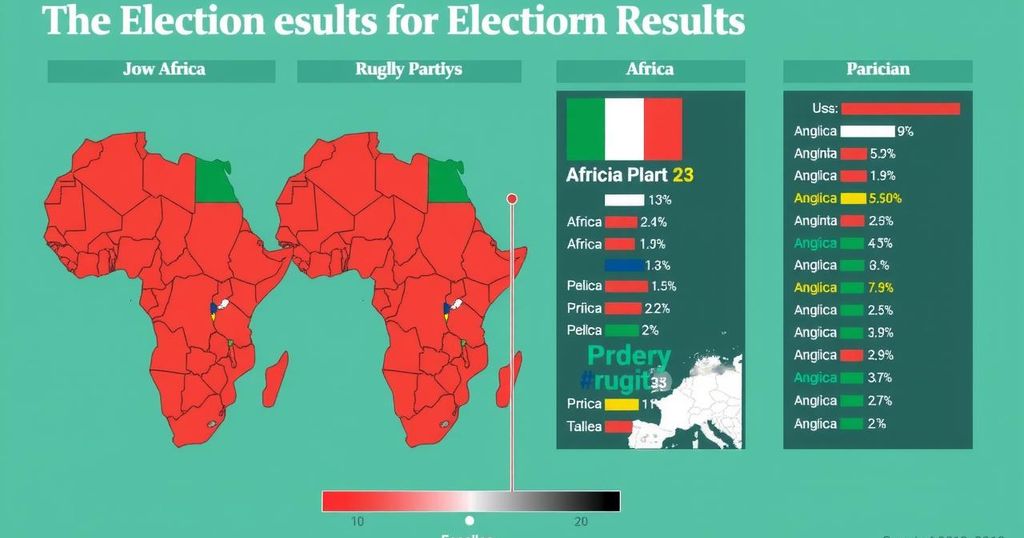In 2024, multiple African nations held elections, resulting in mixed outcomes. Some ruling parties like Frelimo in Mozambique and SWAPO in Namibia retained power, while others like the ANC in South Africa and Comoros faced challenges. Ghana and Senegal witnessed significant opposition victories. The Sahel region, however, saw elections postponed due to military juntas’ dominance, indicating continued instability.
In 2024, several nations across Africa conducted presidential, parliamentary, or local elections. While some long-standing ruling parties maintained their hold on power, others experienced surprising and significant electoral defeats.
In Southern Africa, the Comoros archipelago held presidential elections, where incumbent President Azali Assoumani secured a fourth term. The opposition rejected the election results, resulting in violent protests that led to casualties. In Mozambique, the ruling Frelimo party extended its nearly 50-year dominance, but opposition leader Venancio Mondlane’s rejection of the election outcome sparked unrest. Analysts predicted Frelimo’s victory despite significant youth support for the opposition. In Namibia, SWAPO continued its governance streak and elected its first female president while facing accusations of electoral flaws. Contrastingly, Botswana elected its first opposition leader in nearly 60 years, signifying a pivotal change in its political landscape. The African National Congress (ANC) of South Africa, dominant since 1994, faced unprecedented challenges, failing to secure an outright majority and thus obligated to form a coalition government due to discontent among voters over service delivery and allegations of corruption.
In East Africa, Rwandan President Paul Kagame received near-unanimous support. Analysts highlighted his contributions to national peace and development, while some criticized his overwhelming vote tally as indicative of a restricted political environment.
West Africa saw notable electoral dynamics as Ghana’s John Mahama made a remarkable return to power, defeating the ruling party candidate amid economic concerns. Additionally, Senegal’s Bassirou Diomaye Faye emerged as the continent’s youngest president after a political crisis stirred by attempts to postpone elections.
In the Sahel region, electoral processes were delayed in Mali and Burkina Faso, as military juntas displayed a reluctance to relinquish power. The situation has raised concerns regarding media freedom and access to information, particularly in light of measures taken against foreign broadcast media.
The 2024 elections across Africa reflect a complex political landscape where established regimes faced significant challenges from opposition forces. These electoral events took place in a context of ongoing debates around governance, democracy, and the electorate’s expectations for effective leadership. In several nations, incumbent leaders have fortified their positions despite widespread protests and concerns over electoral integrity. Conversely, in regions like West Africa, emerging leaders have signaled a shift towards newer governance styles, illustrating the dynamic nature of political power on the continent as it navigates economic difficulties and social unrest.
In summary, the 2024 African elections showcased a blend of continuity and change within the continent’s political sphere. While incumbent parties retained power in various nations, significant losses also occurred, which could reshape political dynamics moving forward. Observers note the importance of addressing voter discontent and fostering an environment conducive to democratic engagement as African countries continue to evolve politically.
Original Source: www.voanews.com







